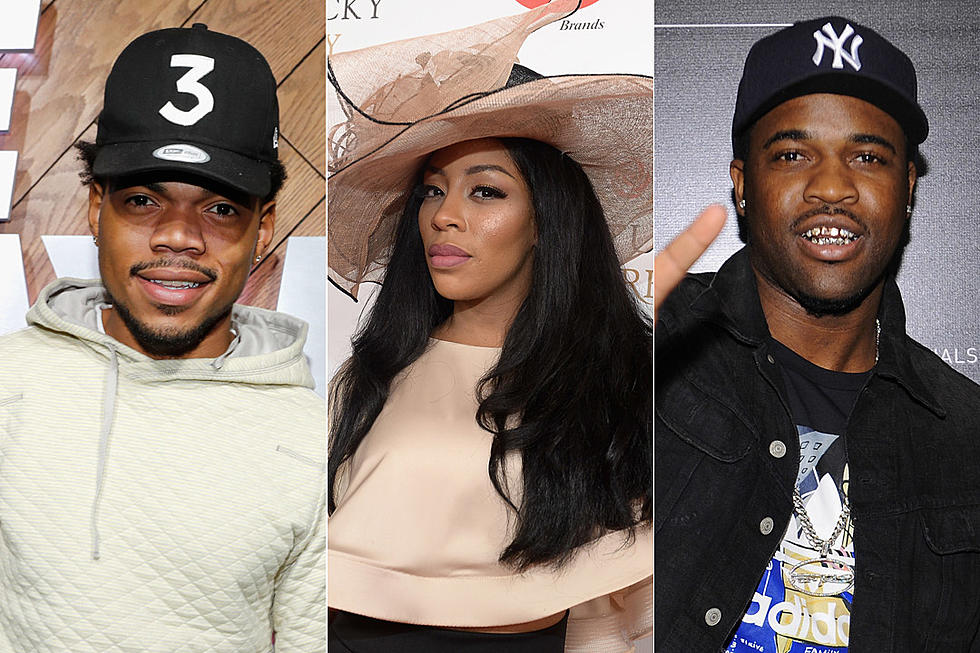
Kendrick Lamar Breaks Tradition
As a young boy, Kendrick Lamar wanted to go to prison when he grew up. After watching several loved ones bounce in and out of jail, he decided he had no choice but to carry on family tradition, and saw his final destination as something to aspire to instead of avoid. “For a long time, I thought going to jail was cool,” he explains. “All my uncles are doing life sentences, and that was where I wanted to go.” His youthful aspirations are crystalized on the song “Poe Mans Dreams,” in which he rhymes: “I used to want to see the penitentiary way after elementary, thought it was cool to look the judge in the face when he sentenced me.” “I said ‘after elementary’ because that was when I figured I should go,” he says. “Not that I wanted to go out and do things purposely, but eventually it would happen, and I would be cool with it.” His nasal Cali drawl arrives deadpan over the phone from a Los Angeles recording studio as Lamar recounts his thought process. “All my friends and all my cousins I was comin’ up with wanted to go to jail too. That’s how it was in Compton.”
It’s this sobering bluntness and lucidity that has established Lamar as one of the most captivating underground MCs rapping today. The 24-year-old California native crafts intricate narratives that peg his generation with an acute objectivity. In an era when the nation’s young adults have been distilled into 140-character tweets and skinny-jeaned narcissism, Lamar has captured their warm pain by bearing his own, obsessing over the large questions he can’t answer. The characters he rhymes into being burst with complexity and roundness, and his
multisyllabic, tumbling flows evoke Q-Tip’s spasticity and Busta Rhymes’ agility (Busta even hopped on a remix from Lamar’s latest project). After signing with local imprint Top Dawg Entertainment and dropping a slew of free projects over the past seven years, Lamar released his latest album, Section.80, to mass acclaim, and it has sold more than 30,000 copies with no radio campaign or major promotional push. He graced the cover of XXL’s coveted Freshman Class issue this past year, has been tapped by Dr. Dre for contributions to the oft-delayed Detox, and shared the stage with Kanye West at the Brooklyn Hip-Hop Festival. Still, the young rapper claims this is only the beginning.
“I haven’t put that much out there yet,” says Lamar, who has released six full-length projects since 2003. “A lot of people think they’ve figured me out because of the material I’ve given them, but this shit gets real deep for me, as far as me growing up in the city and being who I am as a person.” Lamar claims to have grown up a “good kid in a mad city,” and boasts of the love he gets in his native town while still consistently avoiding its pitfalls. He rhymes of this rare duality on Section.80’s “Ronald Reagan Era”: “Compton Crip niggas ain’t nothin’ to fuck with… but they fuck with me, and bitch I love it.” When asked why he thinks a traditionally conscious rapper such as himself resonates so strongly with the gangbangers and hustlers, Lamar dismisses the title: “I don’t believe in the phrase ‘conscious rapper.’ Everything that I make is Kendrick Lamar. My whole thing is being a person that’s an individual, a young man in the world trying to find answers.… That’s what separates me from a lot of the music you’ve been hearing from the younger cats. There’s not too many people out there that can connect with the new generation of people and make it feel organic.”
With a new album on the way (which he hopes will be a major-label release), Lamar promises that his deeply personal music will only become more transparent. “I’m really about to tap into the prelude to my life on this next album. When you listen to certain songs of mine where I tell these stories about my life, I’m going to really get into the background of those and how I became who I am.” And despite boasting a maturity beyond his years, the young rapper is certain he has much left to learn. “I don’t think a person ever fully finds themselves out until their end of days, on their dying bed at 70, 80 years old. I’m always going to grow. I’ll never know what the future holds. At the end of the day, all I have is a dream and a vision. Wherever it guides me, I’ll go.” —Matthew Trammell
(This article originally appeared in the Winter 2012 issue of ANTENNA.)
More From Antenna Mag







![Prince and Kendrick Lamar Perform ‘What’s My Name’ in Rare Footage [VIDEO]](http://townsquare.media/site/625/files/2016/05/prince-kendrick-lamar-rare-footage.png?w=980&q=75)
![Ice Cube Fully Reunites N.W.A, Brings Out Kendrick Lamar at Coachella 2016 [PHOTO]](http://townsquare.media/site/625/files/2016/04/Ice-Cube-NWA-Coachella.jpg?w=980&q=75)
